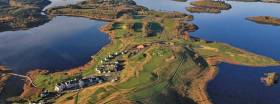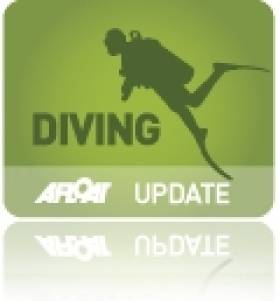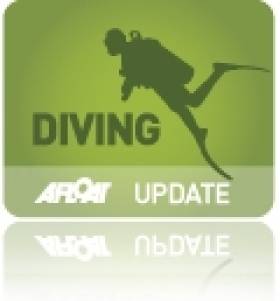Displaying items by tag: Golf
Lough Erne Loses 2017 Irish Open
#LoughErne - It's been confirmed that the Lough Erne Resort will no longer host next year's Irish Open golf tournament.
As reported on Afloat.ie earlier this year, changes in the European golfing scene had cast doubt on the Fermanagh lakeland resort hosting of the 2017 event in after getting the nod two years ago before its purchase by American business tycoon Tony Saliba.
Those doubts were confirmed last week, as the News Letter reports, with a statement from the Lough Erne Resort that it is "extremely disappointed" that the European Tour has announced a change in venue.
It's understood that the sport's new European bosses favour a links course for the annual Irish Open, with Portstewart Golf Club on the North Coast a likely candidate.
The News Letter has more on the story HERE.
Lough Erne's Hosting Of Irish Open No Longer Certain
#LoughErne - Changes in the European golfing scene have cast doubt on Lough Erne's hosting of the Irish Open in 2017.
The Faldo Championship Course on the lough's shores was given the nod in early 2014 to host Ireland's most prestigious golf event, which was held at Royal County Down last summer.
Since then the Lough Erne Resort was snapped up by American business tycoon Tony Saliba.
But now the News Letter reports that European Tour officials have backed away from a firm commitment after the emergence of new stakeholders in Rory McIlroy's Rory Foundation and sponsor Dubai Duty Free – and a changing of the guard at the executive level.
According to a European Tour spokesperson, new CEO Keith Pelly "has big, big ideas about what he wants to do and the Irish Open is a key part of that strategy because it is one of the biggest tournaments.”
The News Letter has more on the story HERE.
Billionaire Buys Up Lough Erne Golf Resort Say Reports
#InlandWaters - Donald Trump isn't the only American billionaire eyeing up Ireland's premier waterside golf courses, as the Belfast Telegraph reports Tony Saliba has purchased the championship-calibre Lough Erne Resort.
Despite going into administration just four years after its opening in 2008, the five-star hotel and its accompanying Faldo Championship Golf Course will be the location of the Irish Open in 2017, after its successful hosting last year's G8 summit.
And the Co Fermanagh resort's £10m asking price was surely attractive for Chicago-based Saliba, dubbed one of America's 'market wizards' in the 1980s and reportedly an avid golf fan.
The Belfast Telegraph has more on the story HERE.
Wanted: One Scuba Diver To Fish For Golf Balls
#Diving - BreakingNews.ie reports on one entrepreneur's oddball request for a Scuba diver to fish lakes and streams at golf courses across the country for lost golf balls.
Richard Noonan of Encore Golf Balls says water hazards at Irish golf courses hold "thousands" of lost balls that are a lucrative bounty for anyone with the wherewithal to recycle them.
Noonan currently sells golf balls retrieved by a dive team in Spain, but as he says himself: "Why get someone to do it in Spain when you can do it here cheaper?"
BreakingNews.ie has more on the story HERE.
Divers Search For Balls Sunk By Golfing Legend
#DIVING - Diver Gus O'Driscoll and four members of the Delta Specialist Diving Club are currently searching the bed of Lough Salt in Donegal for a number of golf balls driven into the water more than 100 years ago by the legendary Old Tom Morris.
The Belfast Telegraph reports that 20 of the golfer's own rubber balls were hit into the lake during an exhibition in 1891. Though worth a shilling a piece at the time, today they are worth a whopping €20,000 each.
The only obstacle in the path of the intrepid divers is the mountain of golf balls they have to sift through to find the exceedingly rare 'gutta perches'.
"There are literally thousands of balls at the bottom of Lough Salt because stopping off to hit golf balls there has been a tradition going back to Morris's time," said O'Driscoll.
If they do strike it lucky, the divers plan to donate their finds to the nearby Rosapenna Golf Club, whose course was designed by Old Tom himself.



























































